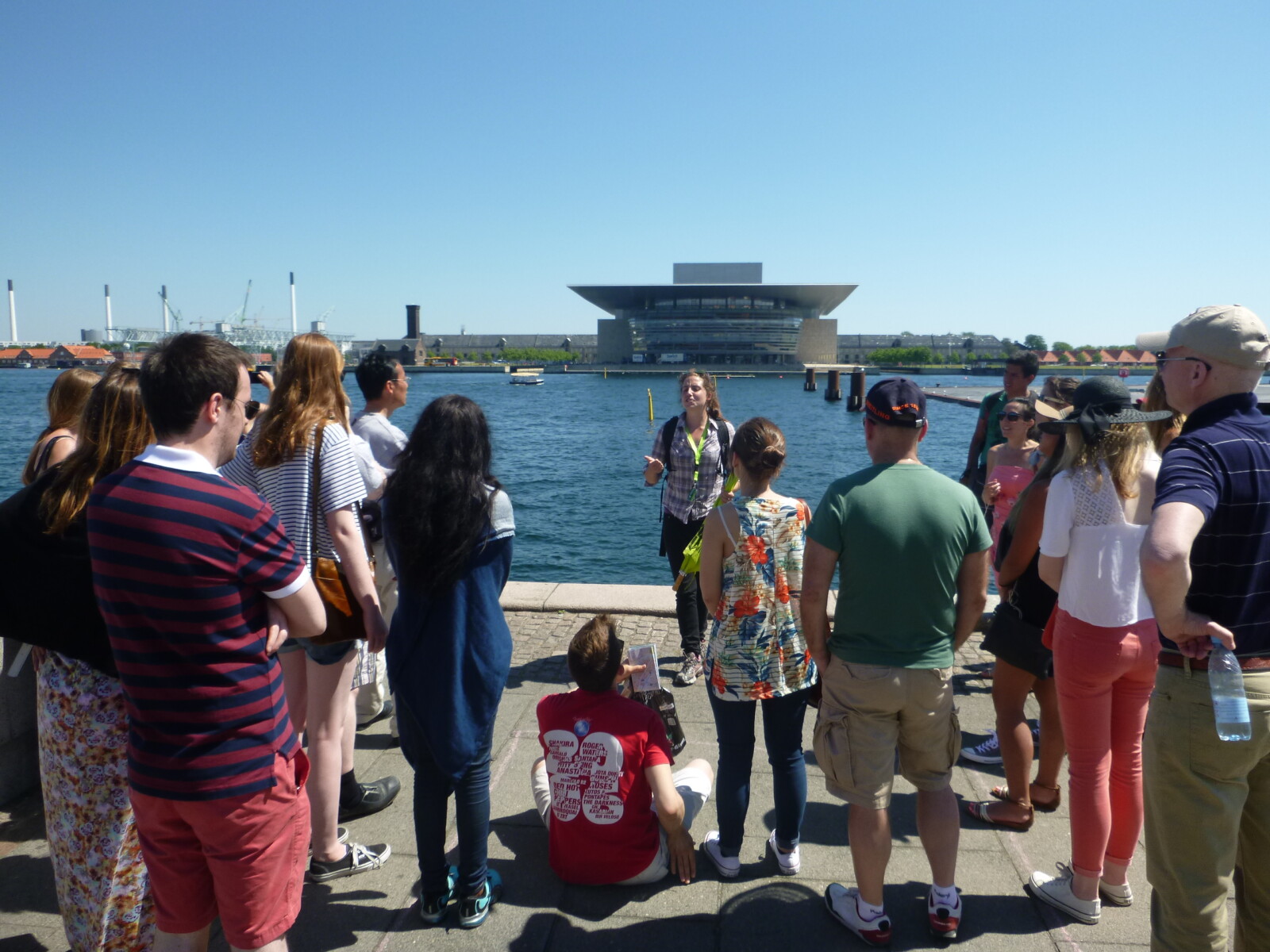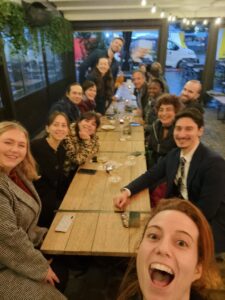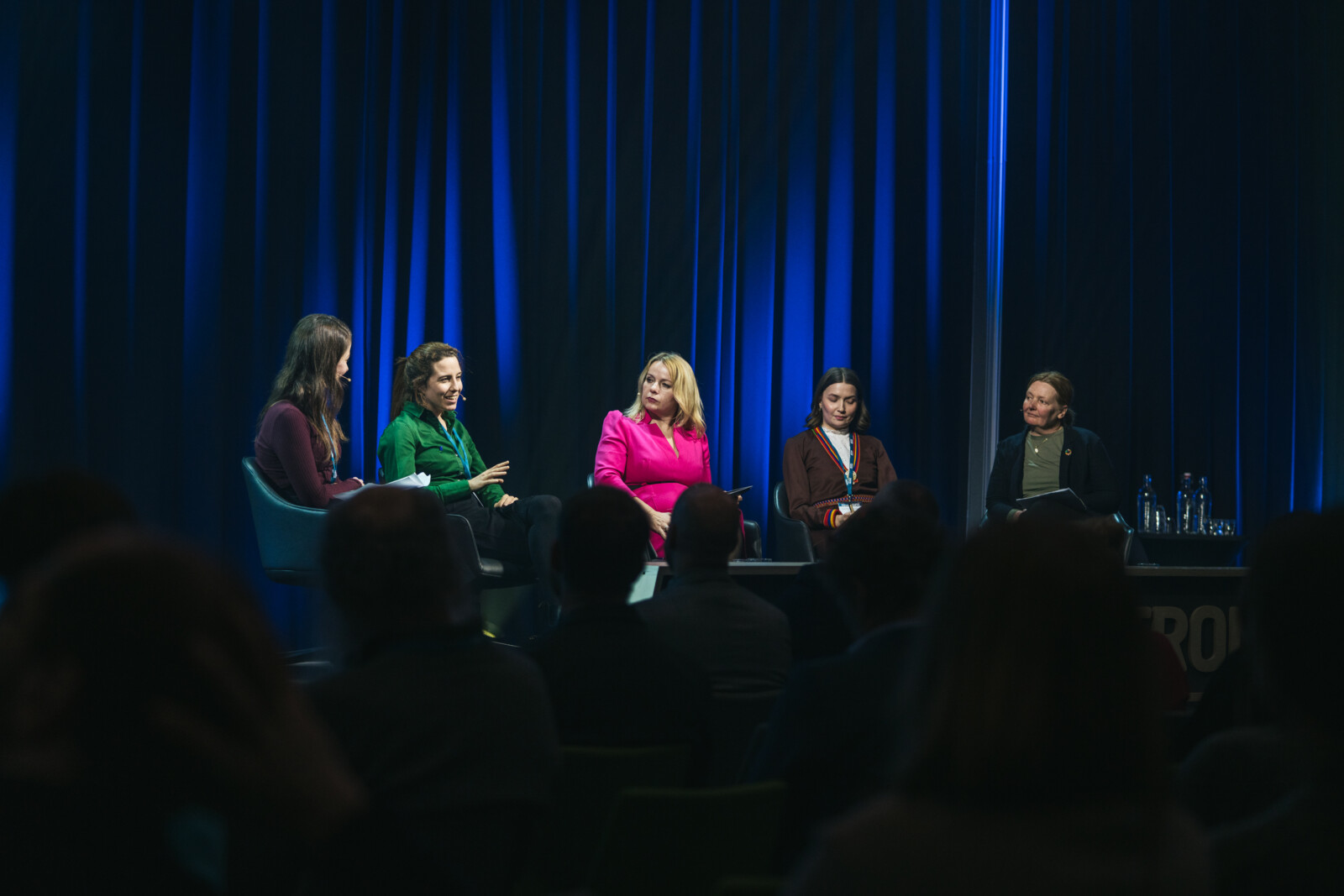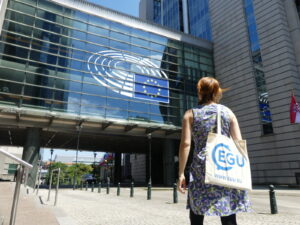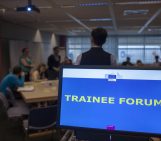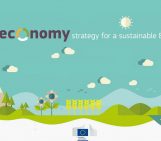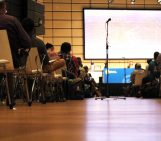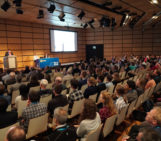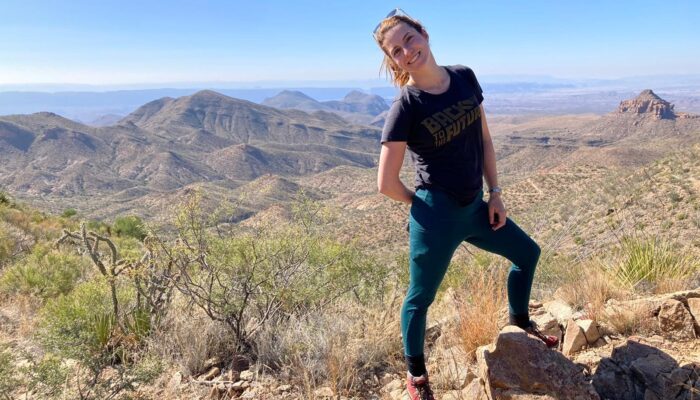
‘What I wish someone told me early in my career’ is a new Geolog series that aims to provide valuable insights and guidance to early-career professionals within the European Geosciences Union (EGU) community. Each month, I will interview a staff member of EGU to share their personal career journey, experiences, challenges faced, and the tips they wish they had received earlier in their careers. This month, I am having a chat with our Policy Manager, Chloe Hill (she/her). Chloe joined EGU in 2017 as the Policy Officer and has been promoted to Policy Manager in 2019, managing the union’s policy programme, which is aimed at building bridges between geoscientists and European policymakers, engaging the EGU membership with public policy events, and informing decision makers about the Earth, planetary and space sciences Let’s get to know her!
Hello Chloe, and thank you so much for agreeing to sit with me for this interview! To start, could you tell me a little bit about yourself and your background?
More than anything else, I’d describe myself as a generalist! During university, I was interested in many different disciplines and subsequently struggled to choose a particular field to specialise in. I transitioned from a natural science undergraduate degree to social and political sciences masters.
I’ve also worked across and between various sectors – from being a research assistant for Forestry Tasmania to assisting the Institute of Climate and Sustainable Cities in implementing climate adaptation measures in the Philippines, conducting research on social resilience in peri-urban Chennai with the Indo-German Centre for Sustainability, and supporting the renewable energy transition in Africa with the GIZ. While this leaves me feeling like I’m a Jack of all trades and an expert in none, it has given me an interesting overview of topics and themes within both, which is actually incredibly useful in my current position as the EGU’s Policy Manager!
Looking back, what motivated you to focus on the intersection between science and policy, and how did you first get involved in this field?
Before applying for EGU, I didn’t have any experience specifically in science for policy – and actually wasn’t aware of it as a field. In 2017, it was a lot less prominent in Europe than it is today! When I saw the advertisement for the EGU position, I felt like it described what I wanted to do perfectly – bringing science and policy together.
Since working on science for policy with EGU, my interest and passion for this area have grown. Ensuring that science is considered in the decision-making process is incredibly important as it supports more effective and better policies. It’s also a really fun, creative, and challenging job! It also enables me to explore fascinating topics and work with some truly amazing people.
Can you share the key moments or decisions in your career that led you to your current role as Policy Manager at EGU?
I moved from Tasmania to Copenhagen in 2012 to experience life as an international student. While I was originally only meant to stay in Europe for 6 months, it quickly felt like home, and I’ve now been here for over 12 years. The decision to take a walking tour of Copenhagen on St. Patrick’s Day in 2012 was also, unexpectedly, a key moment in my career. The Irish tour guide was upset at having to work on his public holiday due to insufficient staff. This led me to join the company as a tour guide and later start a tour guide collective, which enabled me to stay in Europe. I still enjoy running the occasional Beer Tour in Munich after my EGU workday comes to an end.
Following my studies, I was offered two positions on the same day: a two-year position working for the Australian government and an internship with the German development agency (Deutsche Gesellschaft für Internationale Zusammenarbeit – GIZ) supporting the renewable energy transition in Africa. While the internship wasn’t as long-term or lucrative, it sparked my interest and let me extend my stay in Europe. It was an easy decision that I made the same day that I received the offers.
After finishing my internship, I worked as a freelance consultant before applying to join the EGU. While I didn’t know much about the EGU at the time, I was thrilled to accept the position and excited by the prospect of being able to integrate two things that I was passionate about: science and policy. While I had a bit of experience in both of these areas, working for the EGU was the first time that I had the opportunity to combine them!
What has been the most rewarding aspect of your career so far, and what achievement are you most proud of?
The most rewarding part of my job is seeing how the researchers that I work with grow, develop their own science for policy skills, and then go on to approach new policy and societal challenges. EGU policy initiatives such as the Science-Policy Pairing Scheme and Biodiversity Task Force provide researchers with the opportunity to develop their skills by directly engaging with decision-makers and policymaking processes.
Witnessing the successes of the EGU Biodiversity Task Force and how they have grown together as a group has definitely been one of the highlights of my career and I’m incredibly proud of all of the Task Force members!
What were some of the biggest challenges you faced early in your career, particularly in bridging the gap between scientists and policymakers?
EGU’s Policy Programme was relatively new when I first started working there in 2017 and it was still unclear exactly what the Union wanted to achieve. This was a huge opportunity as it allowed me to shape my own role within the organisation and shape what is now an important part of the EGU, but it was also a big learning curve!
I spent the first year at the EGU understanding the science-policy landscape and how EGU fit into it. This was quite a challenging time, however, I found that people already working on the science-policy interface and those in Brussels aiming to influence policy were extremely open, willing to answer my questions, and happy to provide me with tips and introduce me to their networks. I’m incredibly grateful to everyone who helped me in those early years (and to those who still do), and I now also try to pass my knowledge and network on to other science-policy newcomers.
Was there ever a piece of advice you received that significantly shaped your approach to your work? If so, what was it and how did it influence you?
You’ll regret the things you didn’t do more than the ones you did!’ While I think this is true for most things in life, regarding my current position, it has led me to establish initiatives and take on new responsibilities that are now key components of the EGU’s Policy Programme. Saying yes to opportunities has very rarely had negative results—and even those have been learning experiences!
What do you wish someone had told you at the beginning of your career in science for policy?
Most people—especially those working on the science-policy interface—are really willing to chat and help others who are just starting out. Reaching out to someone you haven’t met before might seem awkward, but people are generally happy to talk about their work, and it can lead to great ideas, create opportunities, and help you build a strong network.
For early-career scientists interested in policy, what skills or experiences do you believe are most valuable to develop?
Although most scientists are excited to share their knowledge and expertise, the most important thing they can do is listen! Understanding what policymakers are working on and what their information needs are allows you understand the parts of your research are likely to resonate with them. You can then frame and contextualise your research when sharing it, making it more likely that those you’re communicating with will find it useful!
Balancing a demanding career with personal life can be challenging. How have you managed this balance, and what strategies have worked for you?
Being passionate about my work and having the privilege of working with incredible people, many of whom I also view as friends, means that the lines between my personal and professional life are often blurred. I generally view this as a positive, as it means I really look forward to diving into new initiatives, reading EU political gossip, attending EGU meetings, and catching up with people in Brussels! However, it can make it difficult to switch off. One thing that has helped is going on holiday without my laptop. I’m also getting better at keeping my weekends completely work-free.
What trends or developments in science for policy are you most excited about, and how do you think they will impact early-career professionals in the coming years?
The science-policy interface has expanded dramatically since I first started working with EGU in 2017. It’s clear that Europe’s scientific and policy communities now understand the need to integrate scientific evidence into the policymaking process, and both are actively taking steps to help facilitate this. I believe this makes it easier for early-career researchers to justify their engagement in science-for-policy initiatives to their institutions and hopefully also be acknowledged for doing so!
Although policymakers are still sometimes unsure about where to find scientific information and find it challenging to incorporate it due to tight deadlines, they very much want to hear about the evidence that’s relevant to their decision-making. For this reason, the role of knowledge brokers—individuals who are able to understand the relevant scientific information and translate, synthesize, contextualize, and disseminate it to relevant decision-makers—is becoming an increasingly established position within some scientific organizations. This is good news for early-career scientists looking to transition into a career with a greater focus on policy!
What advice would you give to someone just starting out in their career who aspires to make an impact in science for policy?
There is no one path to a career on the science-policy interface! While training is useful (and there are some great free resources out there), the best way to learn about how to engage with policy is by doing it! It’s also likely that you’re already developing many of the skills that you need to be able to provide science advice or work as a knowledge broker. Effective science communication, synthesising research, public speaking, networking, and listening are all skills that are both useful when working on the science-policy interface and that you can develop as a researcher!
While developing your science for policy skills, you can also consider the policy areas that your research might be relevant for. Deciding whether you would like to engage in policy on a local, national or international level is also important as it will help you to focus your efforts. You can then attend some policy events based on these parameters to get a better understanding of what the key issues within your selected policy area and who is already engaging with them. Be open to meeting and working with others who are already engaging in policy issues that are relevant to your research!
Finally, if you could go back in time and give your younger self one piece of advice at the start of your career, what would it be?
Ignore the people telling you to specialise – being a generalist is amazing! You get to follow all of your interests while bringing together fantastic people to try to solve some of the world’s biggest challenges.

